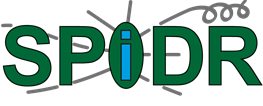
Eileen Kennedy
Dr Eileen J. Kennedy received her B.S. degree from the University of Washington, where she majored in Biochemistry, and then her Ph.D. from the University of California, San Diego, where she was an American Heart Association Predoctoral Fellow. She subsequently performed her postdoctoral studies in the laboratory of Gregory Verdine in the Department of Chemistry and Chemical Biology at Harvard University as an American Cancer Society Postdoctoral Fellow. Dr. Kennedy started her independent in 2010 and is currently the Dr. Samuel C. Benedict Professor and Assistant Department Head in the Department of Pharmaceutical and Biomedical Sciences in the College of Pharmacy at the University of Georgia. She uses synthetic chemistry and kinase enzymology to study allosteric and spatiotemporal regulation of kinases with a long-term goal of developing synthetic biologics that can be used to probe kinase-mediated cell signaling events.

Roman Tuma
Dr Roman Tuma is an Associate Professor of Molecular Biology at the University of South Bohemia in the Czech Republic, where he leads a multidisciplinary centre focused on the structure and dynamics of large macromolecular complexes and the replication of RNA viruses. He completed his PhD in cell biology and biophysics at the University of Missouri in 1996. After a postdoctoral stay at the University of Alabama, Roman obtained funding from the Academy of Finland to establish his group at the University of Helsinki. He joined the Faculty of Biological Sciences and the Astbury Centre in Leeds in 2007 as a Reader in Biophysics. At Leeds, Roman pioneered the use of single molecule fluorescence to study the assembly of RNA viruses and to follow dynamics of membrane proteins. He remains a visiting fellow at the University of Leeds, collaborating on several BBSRC-funded projects.

Charlotte Dodson
Dr Charlotte Dodson is a biophysicist and Lecturer in Drug Discovery at the University of Bath. Her group uses single molecule fluorescence spectroscopy and other techniques to measure changes in the conformation of protein drug targets to improve drug discovery. Charlotte is a Chartered Chemist (CChem) and holds a BA (Hons)/MA and PhD from the University of Cambridge. Her career has taken her across the biological and physical sciences, and she has worked in biophysics, structural biology, chemistry and medical departments at four of the UK’s top academic institutions. In 2013, Charlotte launched her independent research group as a Research Fellow at Imperial College London. She is a member of the Biochemical Society (Policy Committee 2014-2019) and the Royal Society of Chemistry (Chemistry Biology Interface Council 2022-2025). Before 2003, she worked in the Arts as a professional diary and contract manager.

Andy Merritt on behalf of LifeArc
Dr Andy Merritt has held the post of Head of Chemistry at the LifeArc (formerly MRC Technology) Centre for Therapeutics Discovery (CTD) since the summer of 2009. In close collaboration with academic scientists, the CTD develops and prosecutes innovative drug discovery programmes emerging from academic research in oncology, neuroscience and diseases of the developing world. Before his current position, Andy was a Director of Discovery Medicinal Chemistry at GlaxoSmithKline. Andy joined the former Glaxo organization as a senior medicinal chemist in 1988, following postdoctoral studies in the US. Andy sat on the RSC Chemistry World editorial board between 2003 and 2019, has been a regular undergraduate lecturer in pharmaceutical medicine at Imperial College, Warwick and Sussex universities, and was the industrial organizer for the RSC Medicinal Chemistry residential summer school between 1999 and 2005.

Markus Schade on behalf of Astra Zeneca
Dr Markus Schade, MBA, has worked in the pharmaceutical industry for over 20 years. He started his career as a co-founder of the biotech company Combinature Biopharm AG. Next, Markus worked for the biotech Evotec AG, then joined the BigPharma company, Pfizer, then the pain specialist Grunenthal and now AstraZeneca in Cambridge, UK. Markus specialized in Fragment-based Drug Discovery (FBDD), Analytical Chemistry by NMR, and recently Targeted Protein Degradation, where he leads a 3D PROTAC Design research effort. Markus studied biochemistry at the University of Hannover, Germany, and the Massachusetts Institute of Technology, USA, and holds a Ph.D. in structural biology from the Free University of Berlin and an MBA from the Berlin School of Economics, Germany.
